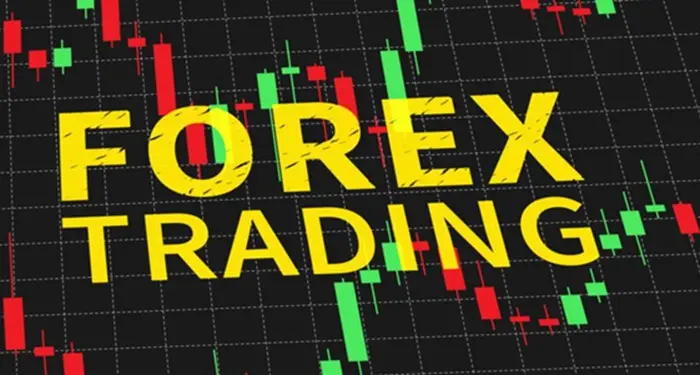The Australian Dollar (AUD) is one of the most recognized currencies globally. It plays a significant role in international trade and finance. As the official currency of Australia, the AUD is used for daily transactions, as well as for investments, trade, and international financial agreements. Understanding the type of currency AUD represents and how it functions in the global economy is essential for anyone engaging in international finance, trading, or travel. In this article, we will explore the nature of the AUD, how it is classified, and what makes it unique.
Introduction to the Australian Dollar (AUD)
The Australian Dollar (AUD) is the official currency of Australia, and it is also used in several Pacific Island nations, such as Kiribati, Nauru, and Tuvalu. The symbol for the AUD is “$,” or “A$” to differentiate it from other dollar-denominated currencies like the US Dollar (USD). The Australian Dollar is subdivided into 100 cents, and its currency code is “AUD.”
In terms of global trade and foreign exchange markets, the AUD holds a significant position. It is frequently listed among the top 10 most traded currencies in the world. With its robust economic backing and strong commodity-driven economy, the AUD plays an essential role in the markets, particularly in the Asia-Pacific region.
The history of the Australian Dollar dates back to 1966 when it replaced the Australian pound. Its introduction was part of Australia’s efforts to modernize its economy and align it with the global currency system. The Australian Dollar has undergone significant changes since its inception, with the government and financial authorities implementing policies that allow the currency to maintain its stability and relevance.
The Classification of AUD
The Australian Dollar (AUD) is classified as a fiat currency. This means that it is not backed by a physical commodity like gold or silver but is instead supported by the government and its economic institutions. Fiat currencies are essentially based on the trust and confidence that individuals and institutions have in the country’s economy and government.
Unlike commodity-backed currencies, fiat money like the AUD has no intrinsic value of its own. Instead, its value is derived from the economic strength of Australia and the credibility of its financial systems. The Australian government, through the Reserve Bank of Australia (RBA), controls the supply of AUD, ensuring its value remains stable and in line with the country’s economic policies.
Role of the Australian Dollar in the Global Market
The Australian Dollar plays an essential role not only in the Australian economy but also in international trade and the global financial markets. The currency’s performance is closely tied to the global demand for Australia’s exports, including key commodities such as coal, iron ore, natural gas, gold, and agricultural products. When demand for these resources rises, it can lead to an appreciation of the AUD, while a downturn in global commodity prices can weaken it.
The AUD is a commodity currency, meaning that its value is influenced by the prices of the country’s major exports. Commodity currencies like the AUD are particularly sensitive to changes in global supply and demand dynamics for natural resources. This sensitivity makes the AUD volatile at times, but it also provides opportunities for traders who specialize in commodity markets.
The AUD is also considered a risk-sensitive currency, which means it tends to perform better during times of global economic growth and stability, as investors seek higher returns from commodity-driven economies. Conversely, during times of economic uncertainty or global financial crises, the AUD may weaken as investors move toward safe-haven currencies like the US Dollar or the Swiss Franc.
Features of the Australian Dollar
The Australian Dollar stands out for several reasons in the global financial markets. Below are some of the key features that define the AUD and make it unique compared to other currencies.
1. Commodity-Backed Nature
As mentioned earlier, Australia is a major global exporter of commodities, and the AUD’s value is highly sensitive to fluctuations in commodity prices. Iron ore, coal, gold, and agricultural products like wool and wheat form a significant portion of Australia’s exports. When global demand for these commodities is high, it often leads to increased export revenues, which strengthens the AUD.
However, the AUD’s commodity-backed nature also means it can be prone to volatility. Changes in commodity prices, whether due to shifts in global demand or supply disruptions, can cause fluctuations in the AUD’s value. For example, a decline in global demand for coal can negatively affect Australia’s export earnings, leading to a weakening of the AUD.
2. Fiat Currency System
The Australian Dollar is a fiat currency, which means its value is not determined by physical reserves like gold or silver. Instead, the AUD’s value is derived from the economic strength of Australia, the credibility of its institutions, and the policies of the Reserve Bank of Australia. The RBA, as the central bank of the country, plays a critical role in managing the monetary policy and stability of the AUD.
The fiat nature of the AUD provides flexibility for the Australian government to control inflation, manage interest rates, and intervene in the currency markets when necessary. It also allows the central bank to respond quickly to changing economic conditions, making it a vital tool for economic management.
3. Free-Floating Exchange Rate
The Australian Dollar operates under a floating exchange rate system. This means that the value of the AUD is determined by supply and demand in the foreign exchange market, rather than being pegged to another currency or a basket of currencies. The floating exchange rate system allows the AUD to fluctuate in value based on changes in economic conditions, interest rates, trade balances, and global investor sentiment.
A floating exchange rate system provides Australia with the flexibility to adjust to economic conditions, allowing the currency to appreciate or depreciate in response to changes in global markets. This system also makes the AUD more susceptible to short-term volatility, as its value can fluctuate rapidly based on shifts in global investor behavior.
4. Liquidity and Accessibility
As one of the most traded currencies globally, the Australian Dollar benefits from high liquidity in the foreign exchange markets. The AUD is actively traded in a wide range of financial instruments, including spot transactions, futures contracts, and options. The currency is also used as a base currency in many global currency pairs, particularly with commodities and emerging market currencies.
High liquidity makes it easy for investors and traders to buy and sell the AUD in the market without significant price distortions. It also provides greater stability and transparency for those looking to trade the currency, whether they are individuals, institutions, or central banks.
5. Global Influence and Trading Partners
The Australian Dollar is often seen as a global currency, with its performance having an impact on markets outside of Australia. The AUD is traded widely against major currencies such as the US Dollar (USD), the Euro (EUR), and the Japanese Yen (JPY). It is also traded in emerging market economies, where investors seek exposure to Australia’s commodity-driven economy.
The AUD is particularly influential in the Asia-Pacific region, given Australia’s strong trade relationships with countries like China, Japan, South Korea, and India. Economic developments in these countries often have a direct impact on the value of the AUD, especially since China is Australia’s largest trading partner and the largest consumer of Australian commodities.
6. Currency for Investment
The Australian Dollar is frequently used in carry trades, a strategy in which investors borrow low-yielding currencies, such as the Japanese Yen, and use the funds to invest in higher-yielding assets denominated in the AUD. Australia’s relatively high interest rates compared to other developed nations make it an attractive destination for foreign investment. This demand for the AUD can push its value higher, especially when global investors are seeking higher returns.
7. International Reserves and Central Bank Holding
While not as widely held as the US Dollar or the Euro, the Australian Dollar is used by several central banks around the world as part of their foreign exchange reserves. Countries with significant trade relations with Australia or with interests in the Asia-Pacific region may choose to hold AUD as part of their reserve currency mix.
The Reserve Bank of Australia (RBA) also manages the stability of the currency by intervening in the foreign exchange markets when necessary. The RBA’s policies, including setting interest rates, impact the value of the AUD and influence investor behavior in the currency markets.
Conclusion
The Australian Dollar (AUD) is a unique and important currency in the global financial system. As a fiat currency backed by the strength of Australia’s economy, the AUD serves as a key instrument in international trade, investment, and foreign exchange markets. It is a commodity currency, highly sensitive to global commodity prices and the economic performance of key trading partners.
The AUD operates under a floating exchange rate system, which gives it flexibility in the global market. Its liquidity and accessibility make it an attractive option for traders, investors, and central banks. The AUD’s role as a risk-sensitive and commodity-linked currency also means that it is affected by global economic conditions, making it a vital component of the international financial landscape.
As the Australian economy continues to grow and adapt to global market changes, the Australian Dollar will continue to play a central role in shaping the future of global trade and finance. Understanding the AUD’s characteristics and the factors that influence its value will be essential for anyone involved in global finance, from investors to policymakers.
Related topics:


































